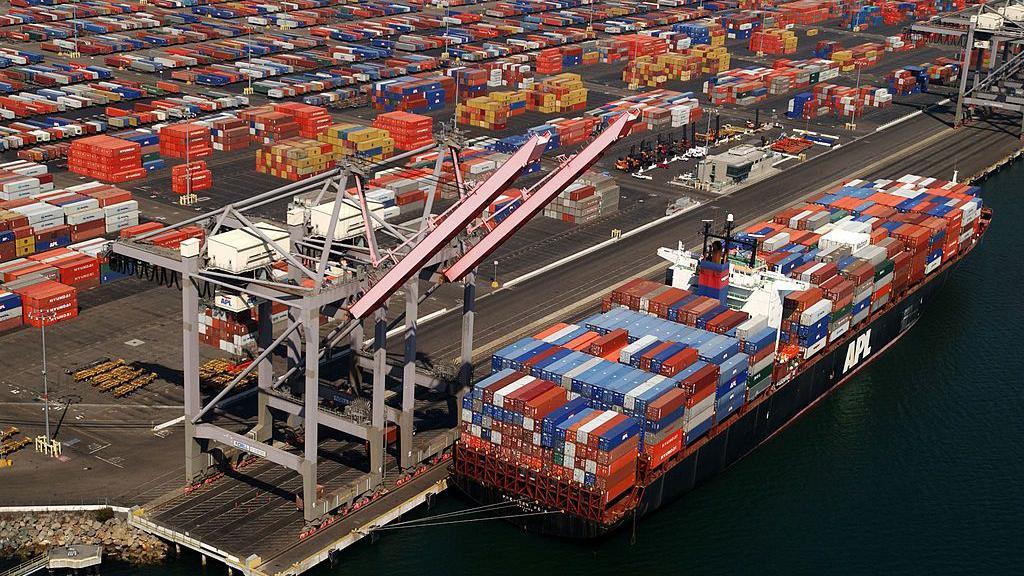“`html
The International Monetary Fund (IMF) has revised its global economic growth forecast upward from its April projections, citing the softening of some US tariffs on goods as a contributing factor.
A surge in US imports, driven by companies seeking to outpace anticipated tariff increases, and governmental efforts to stimulate growth have bolstered the IMF’s updated outlook.
However, the IMF cautioned that escalating tariffs and heightened uncertainty could impede growth and dampen economic activity.
The UK economy is projected to grow by 1.2% this year and 1.4% in 2026, figures consistent with the revised forecasts released in May.
The UK is poised to be the third fastest-growing advanced economy globally in both this year and the next, trailing only the US and Canada.
The IMF, an organization comprising 190 member countries dedicated to fostering global economic stability, attributed the improved global forecast in part to recent trade “front-loading,” referencing the surge of imports into the US.
The IMF projects global growth of 3% in 2025 and 3.1% in 2026, an increase from the 2.8% and 3% figures cited in its April report.
Despite these upward revisions, the projections remain below the 3.3% rate forecast for both years in January, prior to the current US administration, and the pre-pandemic historical average of 3.7%.
Earlier this year, American businesses accelerated imports to circumvent impending tariffs on goods, a policy advocated by the US President.
The IMF has identified potential risks associated with this import surge, including inventory build-up that could reduce future import demand, increased storage costs for firms, and the risk of obsolescence.
Pierre-Olivier Gourinchas, the IMF’s chief economist, noted that a modest easing of trade tensions, however precarious, has contributed to the global economy’s resilience.
He cautioned, “The world economy is still hurting, and it’s going to continue hurting with tariffs at that level, even though it’s not as bad as it could have been.”
He also warned that the impetus from front-loading is expected to “fade away,” potentially dampening economic activity in the latter half of the year and into 2026.
The IMF anticipates a decline in the global rate of price increases to 4.2% in 2025 and 3.6% in 2026.
However, it projects that inflation will likely remain above target in the US as import taxes are passed on to consumers during the second half of the year.
The US administration’s trade policies, which are intended to bolster domestic manufacturing and job creation, have significantly altered the global trade landscape.
A universal 10% tariff on goods from nearly all countries was implemented in April, and further increases are being considered.
Steeper tariffs previously imposed by the US and China on each other’s goods have been temporarily suspended until August 12, with ongoing negotiations in Stockholm.
The IMF forecast does not incorporate recently announced tariffs on products such as automobiles, steel and other metals, pharmaceuticals, and computer chips.
Similarly, trade agreements with Japan and the EU are not factored into the current figures.
“We’ll have to see whether these deals are sticking, whether they’re unravelled, whether they’re followed by other changes in trade policy,” Mr. Gourinchas stated.
“`

